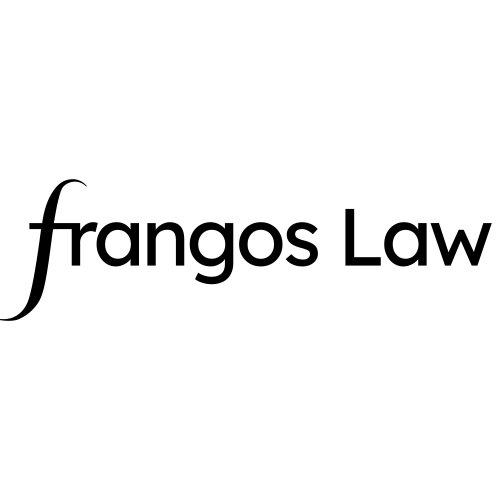Best Government Contract Lawyers in Larnaca
Share your needs with us, get contacted by law firms.
Free. Takes 2 min.
List of the best lawyers in Larnaca, Cyprus
About Government Contract Law in Larnaca, Cyprus
Government contract law in Larnaca, Cyprus, pertains to the legal framework that governs contracts between private sector entities and public authorities or governments. These contracts may involve procurement processes, construction projects, supply of goods, and provision of services. The legal landscape in Cyprus includes a combination of local Cypriot legislation and European Union directives, ensuring transparent, fair, and competitive practices.
Why You May Need a Lawyer
Engaging in government contracts can be complex and poses unique challenges. Situations that often necessitate legal aid include:
- Navigating the rigorous and often elaborate procurement processes. - Ensuring compliance with local and EU regulations. - Addressing disputes over contract terms or execution. - Handling claims of unfair practices or breaches of contract. - Drafting and negotiating contract documents. - Understanding the scope of work and obligations under the contract. - Dealing with potential legal ramifications of failing to meet contractual obligations.
Local Laws Overview
Key aspects of government contract law in Larnaca, Cyprus, include:
Public Procurement Law: Governed by the Law on Public Procurement (N.12(I)/2006), this legislation lays out the procedures for the award of public works contracts, supply contracts, and service contracts by public authorities.
EU Directives: Cyprus complies with various EU directives that regulate the procurement process to promote open competition and prevent “buy national” policies.
Remedies and Appeals: The Review Body for Hierarchical Recourse handles appeals and complaints regarding public procurement procedures, ensuring aggrieved parties can challenge decisions legally.
Anti-Corruption Regulations: Cyprus enforces strict anti-corruption laws to prevent and combat any forms of bribery and corruption in government contracting processes.
Frequently Asked Questions
What is the basic requirement for participating in a government tender in Larnaca?
Participants need to comply with specific eligibility criteria, including having the necessary legal capacity, financial stability, and technical capability, along with submitting the required documentation as per the procurement notice.
How are government contracts awarded?
Government contracts in Cyprus are typically awarded based on open competition through a transparent tendering process that evaluates bids on criteria such as cost, quality, and compliance with the tender requirements.
Is there a limit on the value of contracts that require a public tender?
Yes, contracts above certain financial thresholds, set by the Cyprus government and in line with EU directives, must go through a public tendering process. These thresholds are periodically updated.
What should I do if I believe there has been unfair treatment in the tender process?
If you believe there has been unfair treatment in the tender process, you can file a complaint with the Review Body for Hierarchical Recourse, which will investigate the matter and take appropriate action.
Can a government contract be amended after it has been signed?
Yes, but any amendments typically require mutual consent from both parties and may need to adhere to certain legal provisions to ensure transparency and fairness.
What are the penalties for non-compliance with government contract terms?
Penalties can range from financial fines to contract termination and legal action, depending on the severity of the non-compliance.
How are disputes in government contracts resolved?
Disputes in government contracts may be resolved via negotiation, mediation, arbitration, or through court proceedings, depending on the contractual terms and the nature of the dispute.
Are bidding documents the same for all government contracts?
No, bidding documents can vary significantly depending on the nature of the contract (e.g., construction, services, supply) and the specific requirements set out by the contracting authority.
What is a framework agreement?
A framework agreement is a long-term arrangement with suppliers that sets the terms and conditions under which specific purchases can be made throughout the term of the agreement.
Do foreign companies have the right to participate in Cypriot government tenders?
Yes, foreign companies can participate in Cypriot government tenders, provided they meet the eligibility criteria and comply with the tender requirements, in line with EU principles of free competition and equal treatment.
Additional Resources
Consider the following resources for more information:
Public Procurement Directorate of the Treasury: The central authority for overseeing public procurement processes.
Review Body for Hierarchical Recourse: The body responsible for addressing complaints related to public procurement.
EU Procurement Directives: Available on the EU Law website, these provide the legal framework for public procurement across EU member states.
Local legal advisory firms: Consulting with local legal firms specializing in government contracts can provide tailored and specific guidance.
Next Steps
If you need legal assistance in government contracting, follow these steps:
- Research and contact a local law firm specializing in government contracts. - Prepare all relevant documents and information about your concern. - Schedule a consultation to discuss your case and options. - Follow the legal advice provided, including submitting necessary paperwork, filing appeals, or negotiating terms. - Stay informed about local regulations and updates in the legislation that may affect your contract.
Lawzana helps you find the best lawyers and law firms in Larnaca through a curated and pre-screened list of qualified legal professionals. Our platform offers rankings and detailed profiles of attorneys and law firms, allowing you to compare based on practice areas, including Government Contract, experience, and client feedback.
Each profile includes a description of the firm's areas of practice, client reviews, team members and partners, year of establishment, spoken languages, office locations, contact information, social media presence, and any published articles or resources. Most firms on our platform speak English and are experienced in both local and international legal matters.
Get a quote from top-rated law firms in Larnaca, Cyprus — quickly, securely, and without unnecessary hassle.
Disclaimer:
The information provided on this page is for general informational purposes only and does not constitute legal advice. While we strive to ensure the accuracy and relevance of the content, legal information may change over time, and interpretations of the law can vary. You should always consult with a qualified legal professional for advice specific to your situation.
We disclaim all liability for actions taken or not taken based on the content of this page. If you believe any information is incorrect or outdated, please contact us, and we will review and update it where appropriate.
















